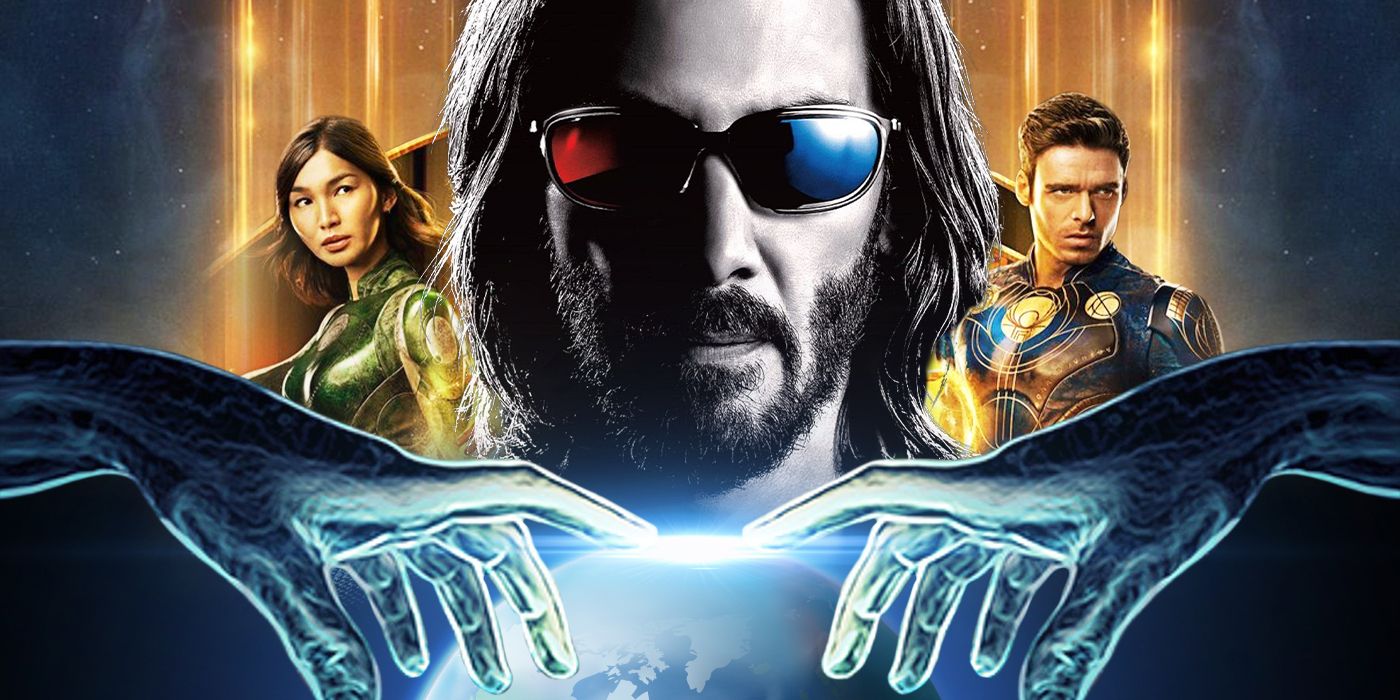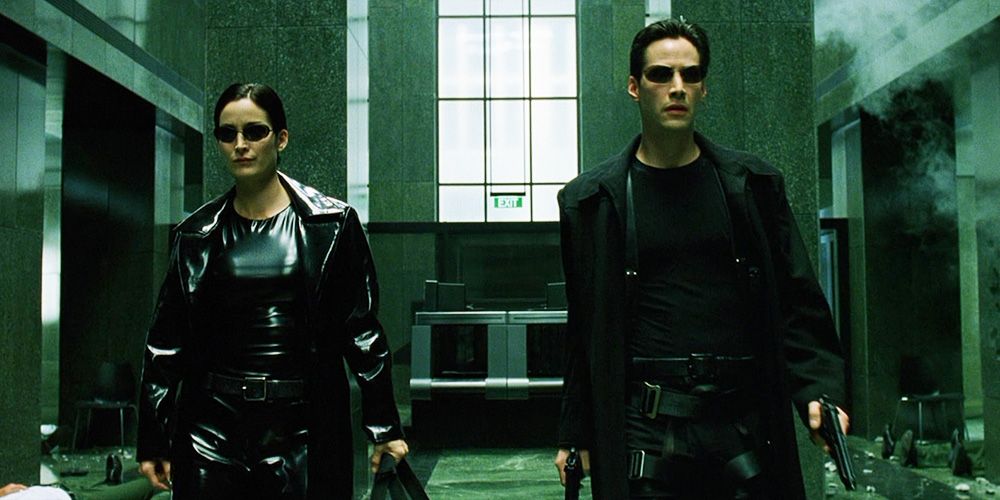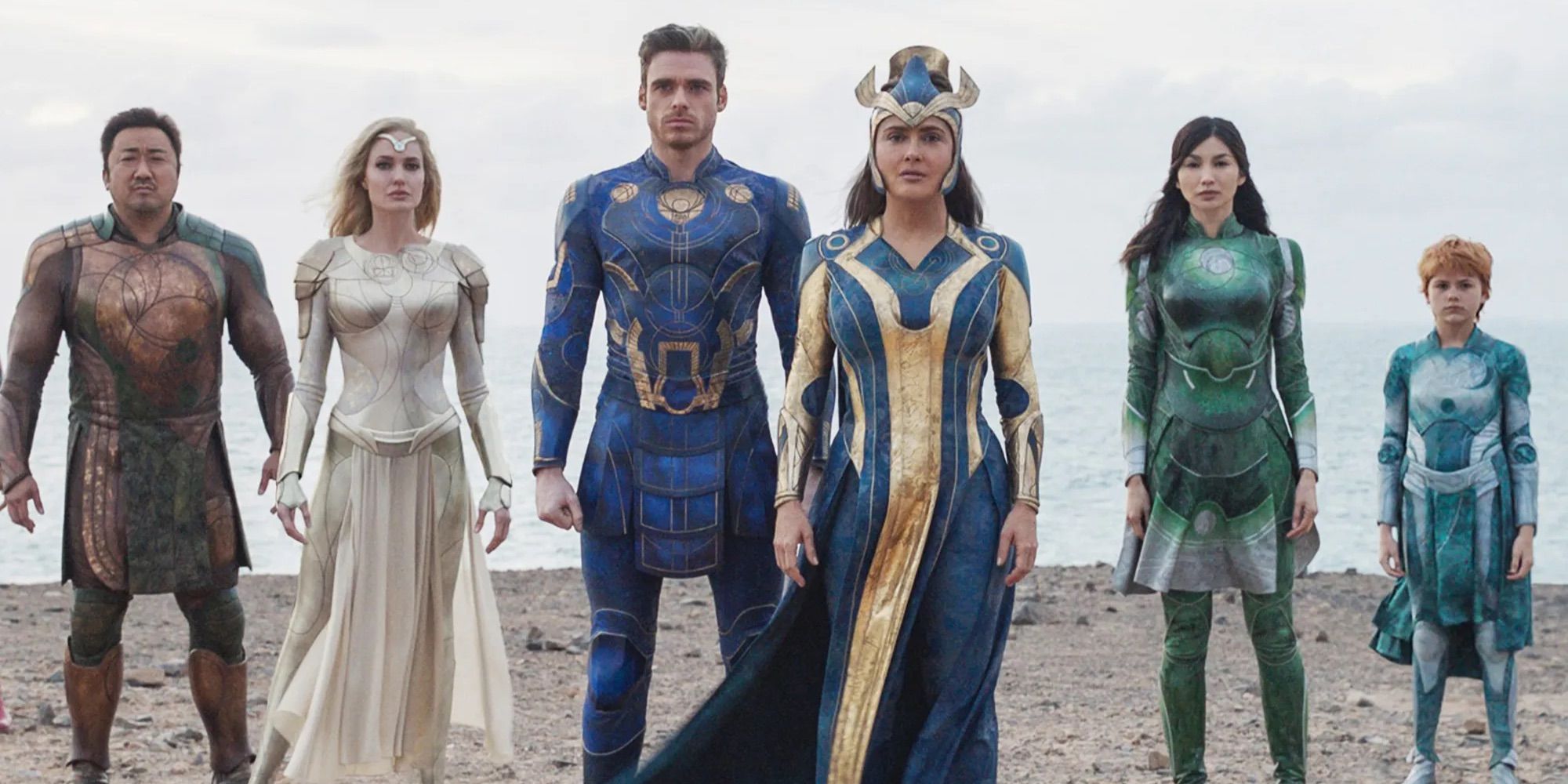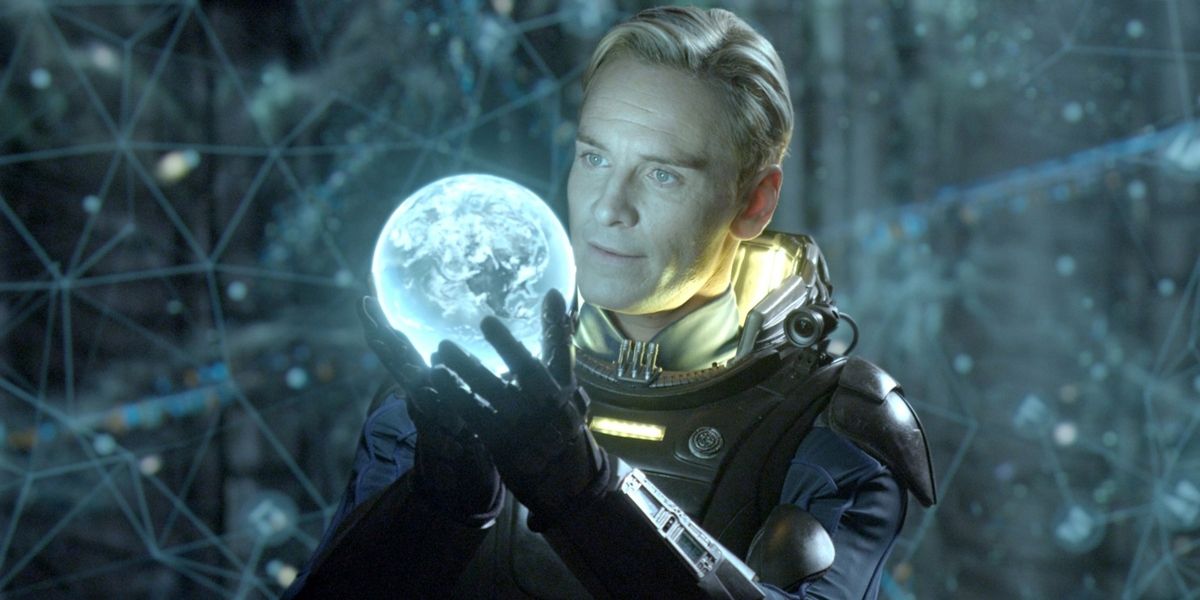The beliefs of the Gnostics, an all-but-forgotten 2nd Century Christian sect, might not seem to have much relevance to the modern world – especially the imagined futures of some of our favorite science fiction films. However, key writers and filmmakers have been influenced by Gnosticism, which asks questions about where we come from and why we’re here. These elements show through in the movies The Matrix, Eternals, and Prometheus. Furthermore, as the best science fiction should, they raise some big issues that are very relevant to our lives today.
Gnosticism is the term used to describe a loose group of early Christian sects that shared common beliefs, most significantly that the world is not perfect and created by a lesser god (known as the demiurge). Special knowledge (gnosis) could allow the individual to see beyond the illusion of this imperfect world. The Wachowskis’ 1999 film, The Matrix, wasn’t the first film to depict a hero who sees beyond the veil of reality, but it’s one of the best.
At the start of The Matrix, Thomas Anderson (Keanu Reeves) has the feeling that something just isn’t right with the world – a suspicion that is confirmed when he meets Trinity (Carrie-Anne Moss). Anderson’s world of office cubicles has a sickly, green-hued quality and the sense of being watched. His encounter with Morpheus (Laurence Fishburne) is a moment when gnosis is offered in the form of the red pill, a gateway to special knowledge. By taking the pill, Anderson is reborn from the false reality, both figuratively (he receives the name Neo, meaning new) and literally.
Emerging from his pod as bald and wrinkled as a newborn baby, Neo is thrust into a world where humans are used as batteries by machines. Morpheus insists that Neo is “The One,” a messianic figure who will free humans from machine slavery. The Matrix is suffused with Gnostic ideas – and other religious traditions such as Buddhism that are referenced when Neo visits the home of The Oracle. The key concept of gnosis, that an individual can access salvation through a very personal spiritual revelation, plays out in Neo’s inner discovery of power.
For most of the movie, Neo is a skeptic and Morpheus is the true believer. Neo asks the Oracle how he will know if he’s The One. She replies that it’s like being in love – “you just know it, through and through” – which is a typically oblique piece of advice. The Gnostics held that discovery of the “divine spark” could be attained via their secrets. If there’s the air of the cult about Morpheus and The Oracle, then it emanates from the Gnostic emphasis on induction into the mysteries of the sect.
When called upon to fight Agent Smith (Hugo Weaving), Neo finally discovers the power within. He is killed by Smith and rises again, in a resurrection that is only too familiar in Christian tradition. Significantly, Neo shines with light at this moment, having discovered the divine spark that Gnostics believed existed within all humans. Having achieved this, Neo is fully able to manipulate the realm of the matrix, stopping bullets and even levitating. He’s finally come to accept that the physical world is completely subservient to the inner light following his revelation. Gnostics would have understood this concept only too well – the physical world was an illusion, and it was the job of people to see past it, by way of touching the divine.
The Matrix is one of several movies from the late 90s (including Dark City, Existenz, and The Thirteenth Floor) that revolved around similar false realities. Many were inspired by the promise of VR and a growing sense that technology might supplant our own reality. Yet they’re rooted in an older science fiction tradition, particularly that of the writer Philip K. Dick – a spiritual seeker who was interested in Gnosticism, particularly in his later books. The Matrix is the best of these films, particularly for the way its ideas pay off in the action sequences. The Wachowskis complicated matters further in the sequels (maybe just a tad too much), although the first film remains the purest expression of this idea and the most engaging.
A second key belief of Gnosticism, that the creator of the world – the demiurge – had less than pure intentions for humanity is examined in Chloé Zhao’s Eternals. The heroes of the story believe they are on a mission from Arishem, leader of the god-like Celestials, to fight the Deviants, creatures that prey on all life. It transpires that Arishem is using human energy to give birth to a new Celestial, destroying the earth in the process.
The similarities to The Matrix – where humans are also mined for their energy – are clear, but Eternals is told from the point of view of the agents of the demiurge. The opening crawl of Eternals reads, “In the beginning…” echoing the first line of the Old Testament and perpetuating Arishem’s lie – namely that the Celestials created order in the universe and the Deviants are an unexplained force of chaos. It’s soon revealed that the Deviants were created by the Celestials, a flawed creation that got out of control.
Gnostic thought had the concept of the Archons, angels that served the demiurge by preventing humans from achieving salvation. The Eternals may guide the development of human civilization, but it is only in service of the Celestials’ need to reproduce. This is a cycle that has happened many times over. Significantly the leader Ajak (Salma Hayek) only questions Arishem’s orders on earth, sensing something special about humanity. “The end of one life is the beginning of another,” Arishem tells the hero Sersi (Gemma Chan), by way of justifying the cycle of destruction and creation. However, in a Gnostic act of rebellion against the false god, Sersi leads the Eternals against Arishem.
Eternals is unusual amongst films of the MCU for having more of a focus on the natural world, as well as an epic sweep across centuries of human civilization. This is in keeping with the themes of creation and examining the role of the superheroes as forces for good. The Gnostics were questioners of creation and humanity’s place in it, seeking answers that ultimately led to them being branded heretics. Eternals, like many works originating from writer Jack Kirby, interrogates the idea of a benevolent creator. For Arishem, humanity is just a tool in the life cycle of the Celestials. This is a complete reversal of the Christian view of an all-loving creator, but it's one to which the Gnostics would have related. It's a disturbing idea, calling to mind the work of H.P. Lovecraft and his depiction of ancient and cruel gods. Such concepts find even more extreme outlets in Ridley Scott’s Prometheus.
Opening with a scene of an alien seeding the waters of earth with its DNA, Prometheus sends a human crew on a mission to contact the race who created life on our planet. The giant, white-skinned Engineers recall classical marble statues and the film’s title is a reference to Greek creation myth. Far from the benevolent maker of Christianity, creation in both Greek mythology and Gnosticism is fraught with problems. In Prometheus, the protagonists discover their creators are far from perfect. The planet to which they have been guided (or warned away from) is a weapons development facility from which the Engineers planned to launch an attack on earth. Clearly, our existence was a mistake that had to be erased. When one of the Engineers is revived, it’s clearly repulsed by the humans, but even more so by David (Michael Fassbender) – an android creation. If the Engineers regard humanity as a mistake, then seeing that mistake start to make (improved) life of its own is doubly disturbing.
The humans in Prometheus have a difficult relationship with the Engineers, but David has an even more problematic one with his creator, Peter Weyland (Guy Pearce). Weyland is deeply flawed and obsessed with prolonging his own life. David is superior to him both physically and mentally. This can be seen even more clearly in the opening scene of the Prometheus sequel, Alien: Covenant, where David challenges Weyland's right to command him by saying, “You will die, but I will not.” We later learn that the next generation of androids have been made less idiosyncratic and intelligent than David because humans found them disturbing. Significantly, these later androids are not allowed to create things, that being the measure of something that can challenge its creator. The Gnostics were all about the question of who created life and why (rather than the givens of Christianity), as mirrored in the questing of these characters. David ultimately rebels fully against the Engineers (the creators of his creator) by turning their biological weapons on them.
“What did we do wrong?” Elizabeth Shaw (Noomi Rapace) asks the Engineer in Prometheus. “Why do you hate us?” It’s a very Gnostic question, trying to get to the bottom of physical pain and cruelty in the universe. Why would a benevolent god allow suffering? The Gnostic solution to this problem was to imagine a less-than-perfect creator and the need to transcend the physical world. In Prometheus, as in many other science films such as Ex Machina and Scott’s own Blade Runner, we see humans elevated to the level of gods by making artificial life – and how far short they come to perfection in relation to their creations. In Scott’s films in particular, the human creator is made to look pathetic in comparison to the creation. As technology develops this century, and we begin to contemplate creating artificial life in virtual worlds, we are in danger of becoming the demiurge ourselves.
The Gnostics may be lost to time, although their intense questioning of the order of things remains with us today. While traditional religion often supports the status quo or a backward-looking attitude, the Gnostics seem almost contemporary in their call to question our identities. The characters in these films share a common thread of rebellion against their accepted place in the universe whether that leads to salvation (as in The Matrix), chaos (Prometheus), or a kind of détente (Eternals). The films are suffused with religious imagery as a way into the big questions they pose. Whether the viewer is religious or not, these concerns are an inherent part of being human. However, these films suggest that the more answers we get, the more questions we might find.




